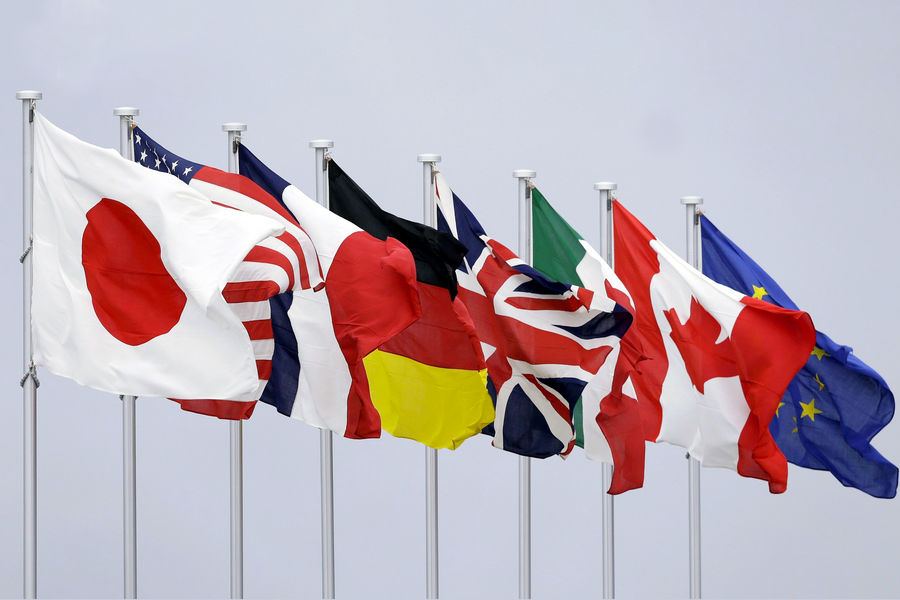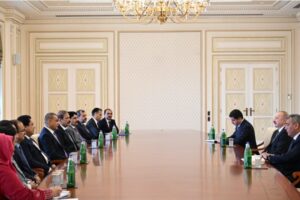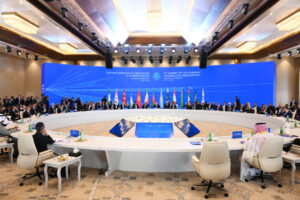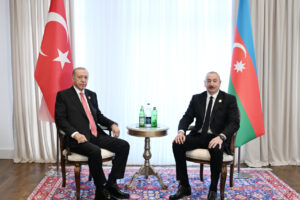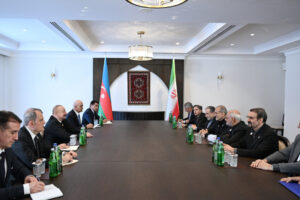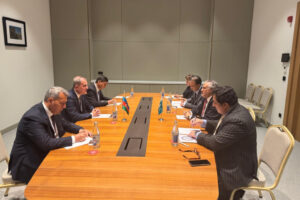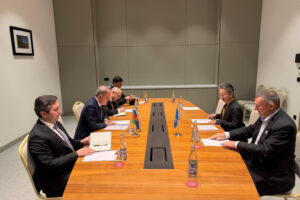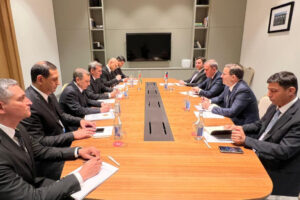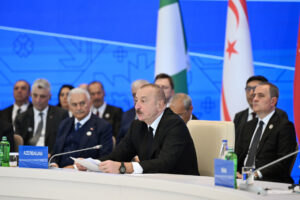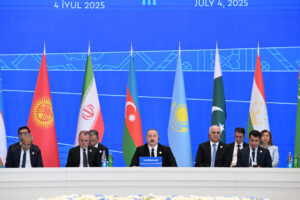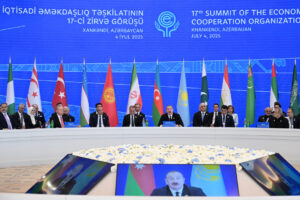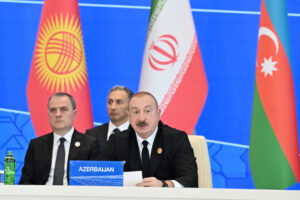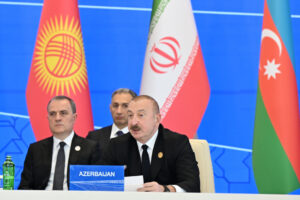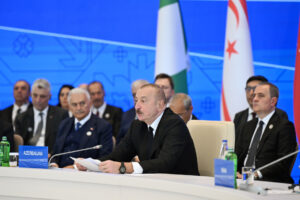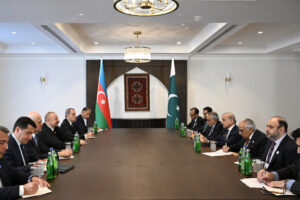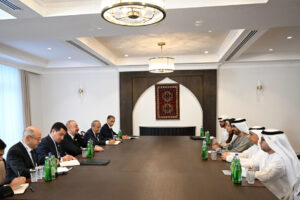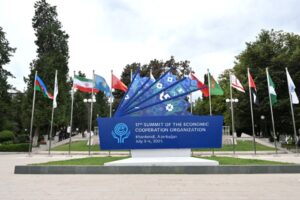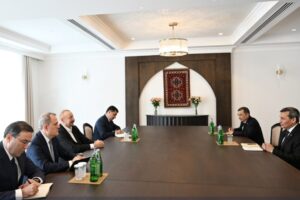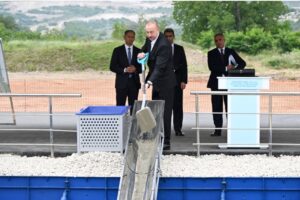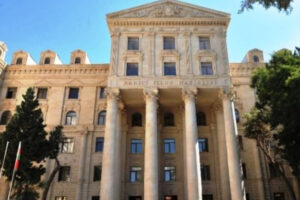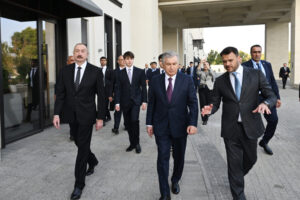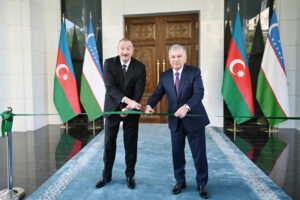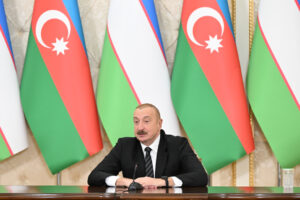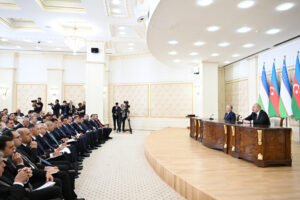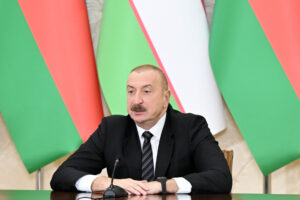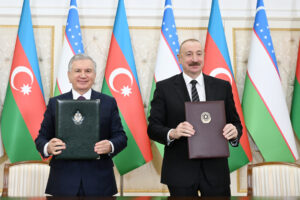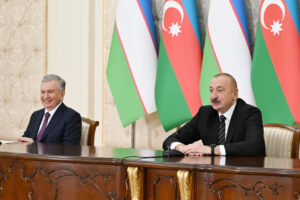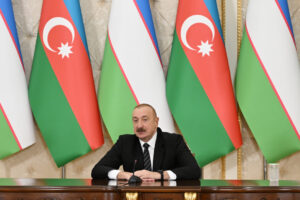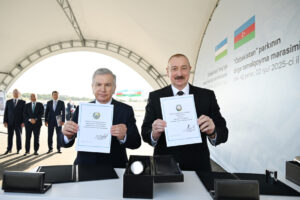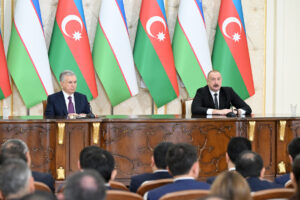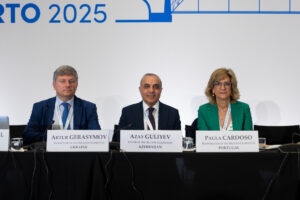Tokyo, 26 June, /AJMEDIA/
Group of Seven leaders will start a three-day summit in southern Germany Sunday to keep up pressure on Russia over its war in Ukraine and cope with its growing consequences for the world economy.
Ukraine is expected to grab the spotlight during the high-level talks in the mountain resort of Schloss Elmau as G-7 support for its recovery and reconstruction takes on greater importance amid few signs of the war ending.
The group imposed powerful sanctions to isolate Russia ever since Moscow launched what they see as unjustified aggression, but the impact of the war, in its fifth month, is also being felt across the globe, with energy and commodity prices surging and food shortages becoming a pressing challenge for some countries.
The G-7 leaders are expected to discuss the economy, climate, energy, diplomacy and security — all closely linked to the Russian war. The potential spillover of Russia’s behavior in Ukraine — a clear violation of international law and a challenge to the existing global order — also keeps the G-7 on alert as an assertive China looms large.
Japanese Prime Minister Fumio Kishida joins other leaders in the club, including U.S. President Joe Biden and Chancellor Olaf Scholz of Germany, who hopes to discuss a long-term support plan for Ukraine as the host of the gathering.
“I would like to exchange candid views on Russia’s aggression in Ukraine, rising prices, the situation in Indo-Pacific and climate change, among other challenges, and exhibit G-7 unity,” Kishida told reporters before departing for Germany.
Japan is in a unique position as it has a long-unresolved territorial dispute with Russia that has prevented the signing of a post-World War II peace treaty while managing often difficult ties with China, a major trading partner but a growing security concern.
Ramping up pressure on Russia to stop its blockade of ports in the Black Sea and allow Ukraine exports to leave is a high priority, not only for the war-hit nation but for other parts of the world as it is a major producer.
Driven by higher energy and commodity prices, accelerating inflation is a common concern for leaders from the G-7 that also involves Britain, Canada, Italy, and France, plus the European Union because it threatens to choke off the recovery from the fallout of the coronavirus pandemic.
Their central banks, except for the Bank of Japan, have already begun to raise or plan to raise interest rates to rein in inflation at levels not seen in decades. The pace of monetary tightening is in focus, and the G-7 finance chiefs have pledged to “appropriately calibrate” it in a clearly communicated manner, a stance that its leaders will likely support.
The Organization for Economic Cooperation and Development now expects the global economy to grow around 3 percent this year, down sharply from its earlier forecast of 4.5 percent.
Despite the hit from the sanctions imposed on Russia, the G-7 is unlikely to waver in its commitment to raising the costs of war for Russia. The leaders agree that unilateral attempts to change the status quo by force should not be allowed, and Ukraine’s sovereignty and territorial integrity should be respected.
Ukrainian President Volodymyr Zelenskyy is set to address the summit virtually and will likely rally support for its efforts to defend and rebuild itself.
A senior U.S. administration official said ahead of the G-7 summit, “a concrete set of proposals” will be rolled out to increase pressure on Russia and demonstrate collective support for Ukraine.
While much attention is given to Russia under the current circumstances, the G-7 will not take its eyes off China, officials say.
They will address concerns about China’s flexing of its muscle in the Indo-Pacific region and fears that Russia’s behavior may embolden Beijing at a time when tensions remain high with Taiwan, a renegade province China aims to reunify with the mainland, by force if necessary.
To prevent such a scenario, the G-7 leaders are expected to call for a peaceful resolution to cross-Strait issues, according to diplomatic sources.
Biden is planning to launch a global infrastructure development initiative to counter China’s “Belt and Road” program aimed at expanding its sphere of influence but causing poor nations to become heavily indebted.

